It is urgent to find an alternative to palm oil. The unsustainability of its production chain is almost unknown to consumers, who have no idea what is in half (yes, HALF) of supermarket products.
Palm oil is used in dishes in Brazil and in African countries. In industrialized products, however, it often appears in the list of ingredients only as “vegetable oil”. This industry is worth $65 billion as it is used not only in food but also in cosmetics, textiles and even fuel. The focus now is on developing an alternative industry to palm oil that is sustainable, functional and economically viable.
Why the concern about palm oil?
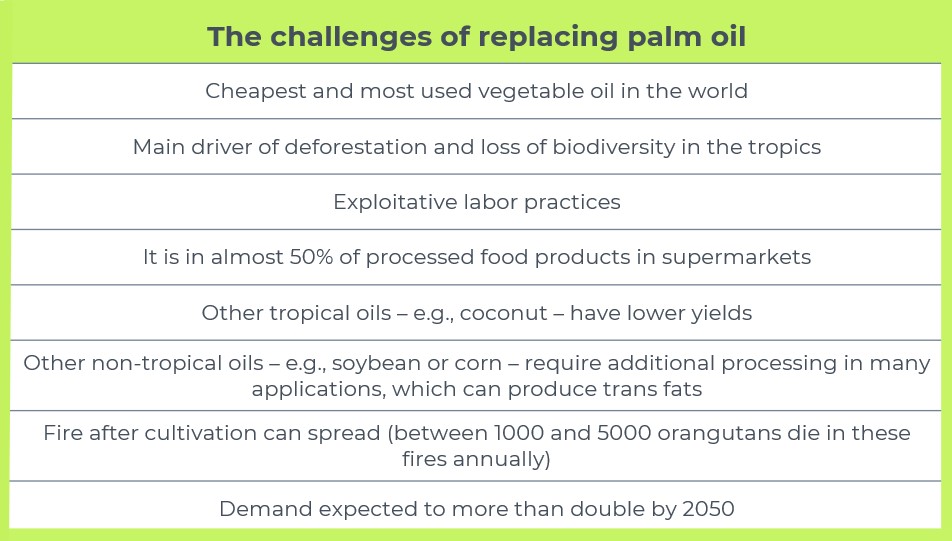
A global dispute
Malaysia, the world’s second-largest producer, has accused the European Union of blocking access to the market with a new law that prevents the sale of commodities linked to deforestation. Although several companies have already adopted global sustainability certifications, the measure can still be an additional burden for exporters. The law complements a previous directive to eliminate palm oil-based fuels by 2030. Germany, however, announced the end of the use of this oil as a raw material in biofuels as of 2023.
The extraction of this oil also generates debates in Brazil. Production is concentrated in Pará state and impacts riverside populations, quilombolas and rural workers in the planting areas.
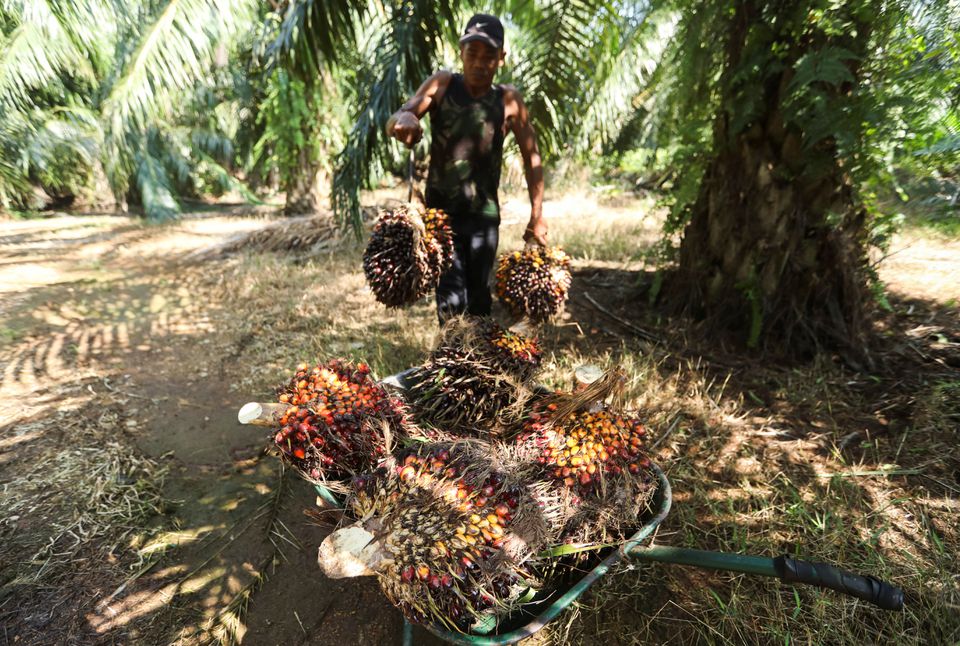
Upcycling and cellular agriculture in the search for an alternative to palm oil
Cellular agriculture makes it possible to produce genuine substances through precision microbial fermentation. The technique is not limited to cultured meat (also known as “lab meat”), there are companies working on vegetable raw materials such as cocoa and palm oil derivatives.
Unilever invested US$ 120 million in a partnership with the North American startup Genomatica (‘Geno’) for the commercialization of an alternative to palm oil made by precision microbial fermentation. Despite being the company’s largest partnership in the industry, they will not cut traditional oil from their supply chain.
Geno is not the only one in this race, the British Clean Food Group received funding from the giant Doehler to develop its cultured oil.
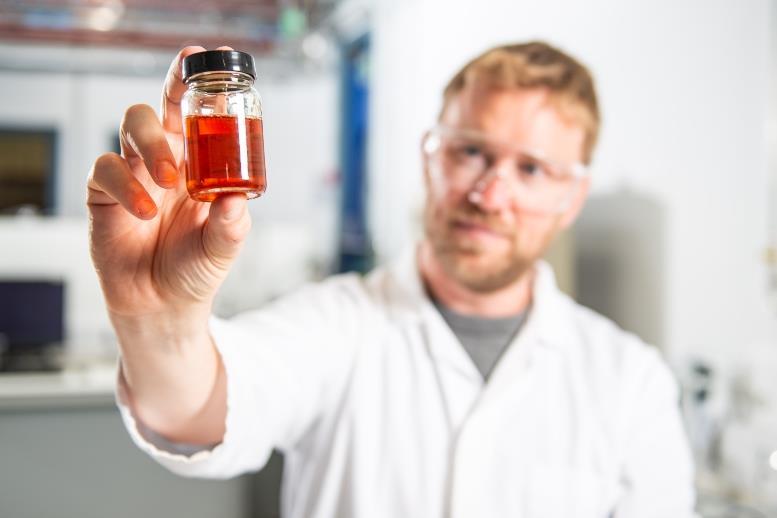
Clean Food Group
Dutch startup No Palm Ingredients combines precision fermentation with upcycling, as it uses potato peelings and other vegetable waste as a means of growing these bacteria. After fermentation, the microbial oil is separated from the biomass, which is also used by other companies.
C16 Biosciences, from New York, is another one investing in the segment and its product launch for industrial use is scheduled for the beginning of 2023.

C16 Biosciences
Californian Kiverdi‘s solution, which already has more than 50 patents, developed its technology inspired by NASA and uses carbon dioxide captured from the atmosphere to multiply its own strain. Xylome owns Yoil™, an almost bioidentical substitute for refined-bleached-deodorized tropical palm oil.
Finally, another North American company, Zero Acre, sells Cultured Oil for domestic use as cooking oil. Cultivation today is done in sugar cane, but it should use food waste such as corn cobs and orange peels in the future.
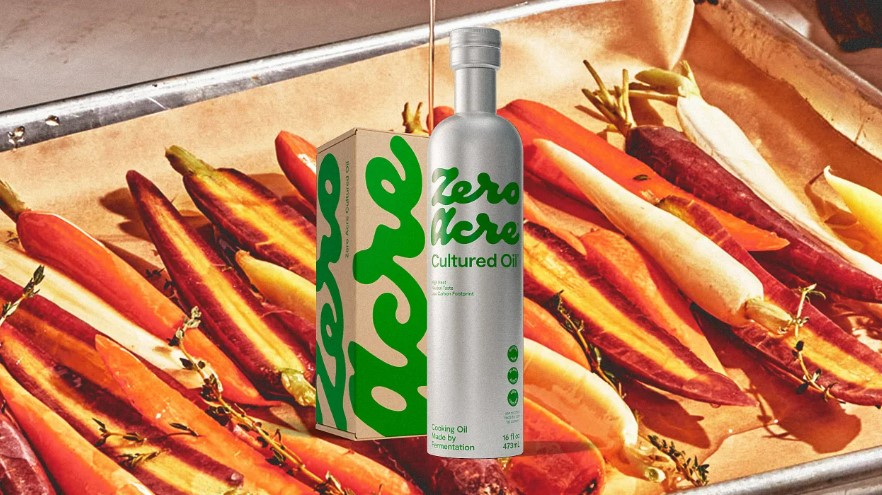
Zero Acre
Coffee grounds oil
We’ve already talked about several coffee waste upcycling solutions (here, here and more here) but it’s really versatile and always offers new possibilities. As upcycling lives not only on precision fermentation, Scottish startup Revive Eco extracts oils from coffee grounds from local coffee shops and restaurants as an alternative to palm oil. The patent-pending technology is promising as it involves the use of substances naturally found in this material. Furthermore, it contributes to the sustainability of the coffee chain, which gains a second life with as much added value as the first.
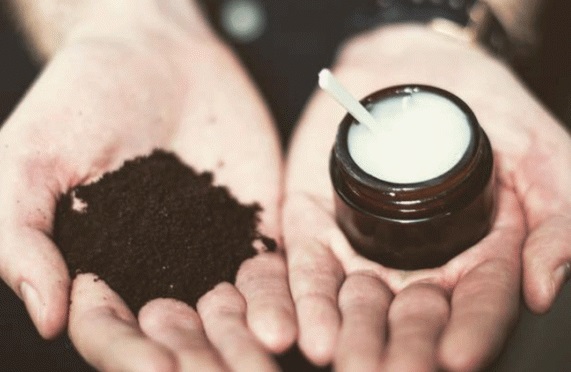
Revive Eco
Tucumã: Brazilian solution
Sometimes the solution is closer than we think. Tucumã, a fruit from the Amazon, can also be a substitute, as it has the same properties as palm oil when it is fractionated and the palm tree that produces the fruit occurs spontaneously in areas of natural regeneration. The idea is not to completely replace palm oil with tucumã oil, but to have another alternative.

Palma (left) vs Tucumã (right)
Microalgae oil
Scientists from the Nanyang Technological University in Singapore have developed an oil derived from microalgae, rich in polyunsaturated fatty acids, suitable for food applications, and which represents yet another alternative to palm oil.
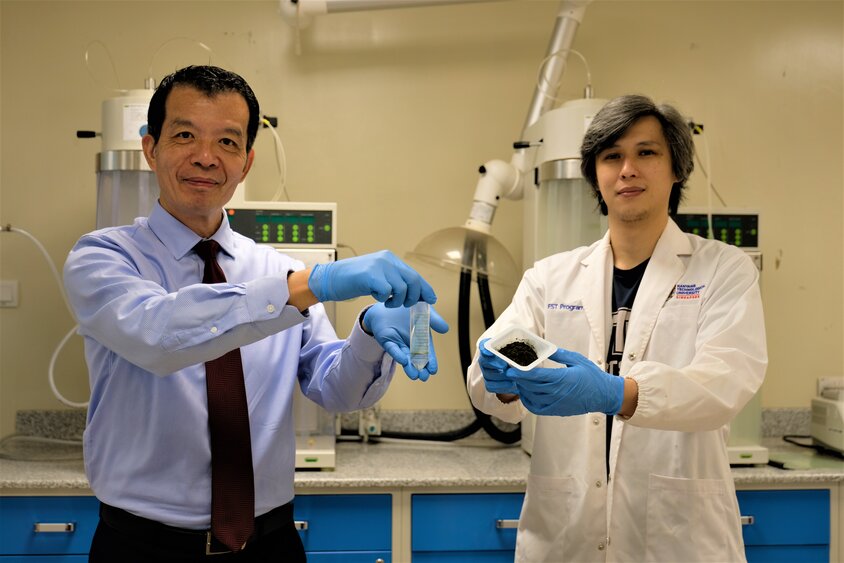
The future
Although there are enormous challenges to scaling production at a cost competitive to palm oil, these solutions can together help to curb the dominant use of palm. They will certainly contribute to food diversification, making this ecosystem more resilient. It is important that, in applications that continue to depend on palm oil, its production is sustainable. The idea here is not to demonize a certain food product, but to expand options and reduce dependence on a single crop.
Sources: Green Queen, Correio Brasiliense, Irish Farmers Journal, Foodbev, Eco21, G1, Reuters (I), Reuters (II), Food Ingredients First (I), Food Ingredients First (II), Ciclo Vivo, Veg News, EU-Startups, Vegconomist, Fast Company, Crowd Cube, Triple Pundit, Jus Brasil, NTU, Natura

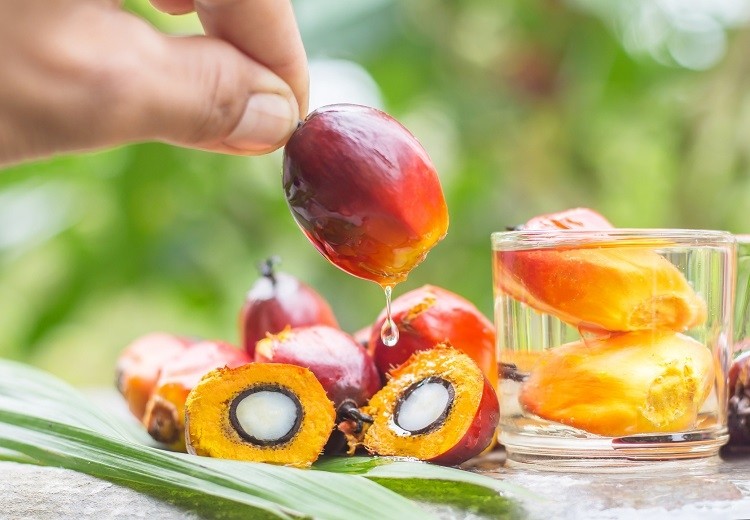

COMMENTS